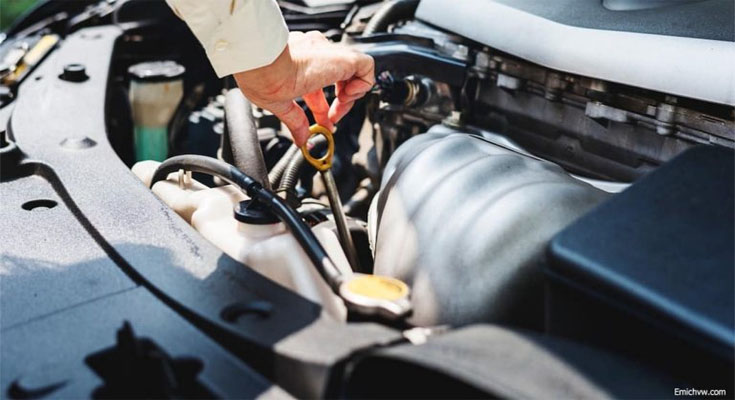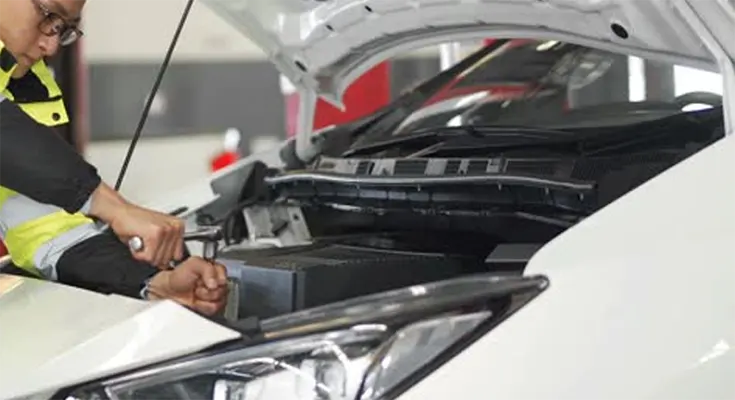So, you have finally decided to clean your garage! You back out the car and discover a small pool of oil on the floor. Immediately the thought of expensive repair bills flood through your mind, but wait! Maybe you can solve this dilemma yourself and save hundreds of dollars in repair bills.
How do you go about fixing this problem? Here are a few things for you to check. First, determine that it is indeed an oil leak. You may notice a puddle of oil in your driveway where your car is parked. Check the relative position of the puddle. If it is NOT where the front of the car would be then it maybe something else. If it is green or watery, then it is probably an engine coolant leak.
Sometimes the leak may appear thin or clear. If it does, then it might be gasoline. Gasoline has a distinct odor and you should be able to smell it and determine if it is oil or gas. If the fluid is reddish in appearance, that would indicate transmission fluid. If the puddle is brown and thick, chances are you have an oil leak. If the puddle is located under the front of your car then you can be sure that it is an oil leak.
Once you have determined that you do have an oil leak, you should pop the hood and look at the engine compartment. If you have taken good care of your car, then the engine compartment should be relatively clean and most oil leaks should be fairly easy to spot. Clean the engine compartment thoroughly before trying to locate the leak.
Start your car and run it for a few minutes. Turn the engine off and let it cool for ten minutes or so. Carefully inspect the engine compartment and check for leaks. Common places to check would be at the valve covers, the oil filter, or the oil pan (underneath your car). Each of those places would indicate a bad gasket or seal. Oil can also leak out from the rear seal, between the engine and the transmission. Remember, oil is put in your car to lubricate the engine and its components. The only way it is going to drip out is if a gasket or seal fails or in the worst-case scenario, you have a crack in one of the engine’s components.













